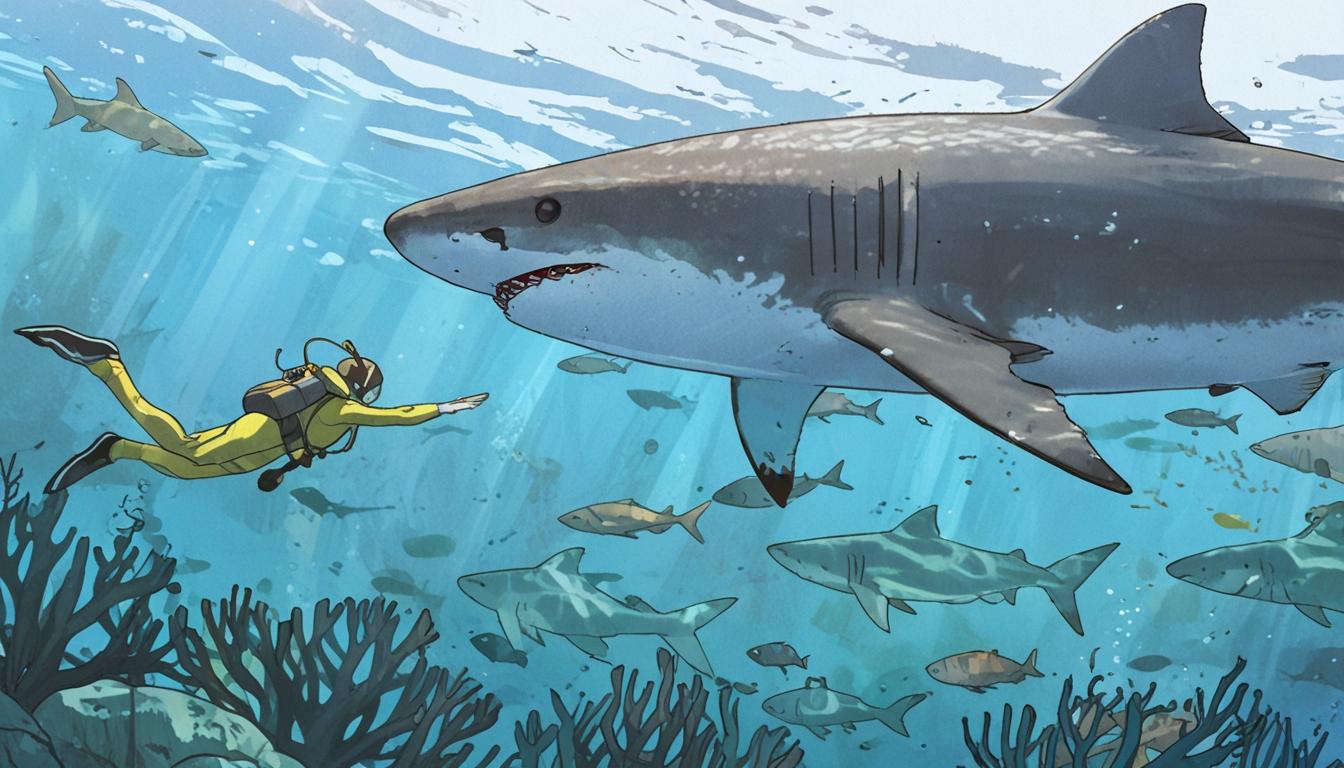A recent study has identified social media influencers encouraging travellers to physically interact with sharks as a contributing factor to a rise in shark attacks. The research, published in the journal Frontiers in Conservation, examined shark encounter records from French Polynesia, revealing that 5% of 74 recorded bites were defensive reactions triggered immediately after humans interacted with sharks in a way perceived as threatening.
The study, led by Professor Eric Clua of PSL University in France, went further to analyse a global database called the Shark Attack Files, which archives data on shark attacks dating back to the 1800s. Researchers discovered that over 300 incidents worldwide matched a similar defensive pattern, where the shark responded to direct human contact.
Professor Clua spoke to The Times, attributing some of this trend to social media trends that encourage behaviour such as clinging to or stroking sharks. He remarked, “I don’t encourage, as many influencers do on social networks, [people] to cling to a shark’s dorsal fin or stroke it, under the pretext of proving that they are harmless and [those people are] supposedly working for their conservation.” He pointed out that while people can distinguish between different dog breeds, such as a Yorkshire terrier and a pit bull, they often fail to differentiate between shark species such as the blacktip reef shark and the bull shark, which vary significantly in behaviour and potential danger.
Professor Clua highlighted an ongoing negative perception bias against sharks, noting that worldwide sharks cause fewer than ten human deaths annually. In contrast, dogs are responsible for over 10,000 deaths each year but remain favourably viewed by the public.
Several celebrities have been featured on social media posting videos of themselves touching or interacting with sharks, including actor Zac Efron, singer Ciara, and actor Bella Thorne. Viral footage has also circulated of divers handling large apex predators like tiger sharks, some exceeding five metres in length, even grasping their noses.
Taylor Cunningham, a social media influencer, frequently shares videos of herself swimming with and touching sharks, while conservationist Ocean Ramsay described such interactions as sharing “rare moments of physical connection”.
Though sharks — often portrayed as fearsome creatures — can be dangerous, researchers emphasise that attacks typically result when humans harass or physically provoke these wild animals. Professor Clua advises those who encounter sharks in the water to observe without touching: “Just look at it. Enjoy its beauty, but remember they are wild animals, predators that can act as predators. It is not only a matter of safety but also of respect.”
Source: Noah Wire Services
